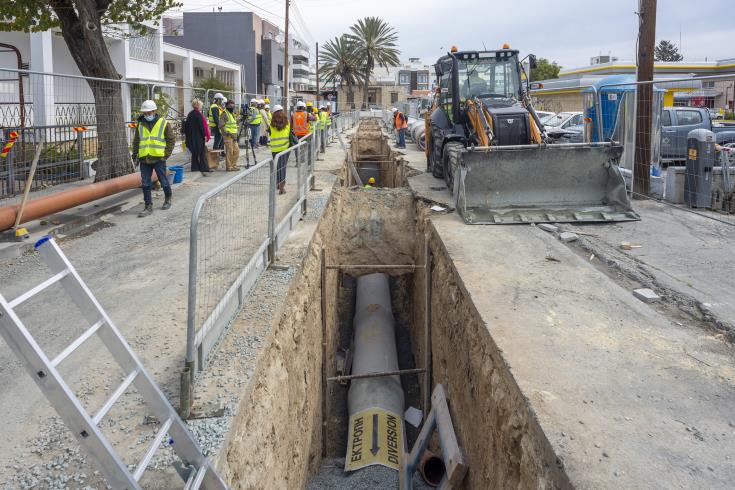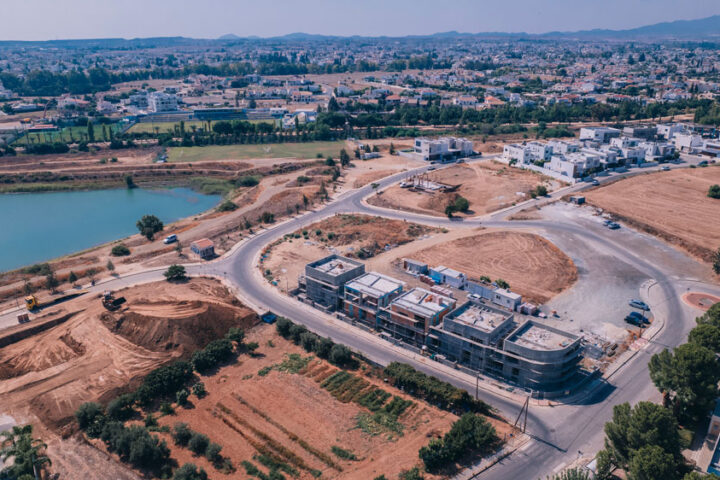Among the difficulties the Republic has, and apart from the unforgiving bureaucracy, there are increasing problems in awarding public tenders for infrastructure and other projects.
Each government tries to promote infrastructure projects that help the greater economy, various communities and rural areas with better access and facilities, increasing their development prospects for the benefit of the residents.
So, the tenders are opened by the state or commissioning authority deciding who will be the successful bidder, and suddenly, those who did not win the tender file an objection in Court, putting a halt to the process until the case is heard, with at least 2-3 years delay in implementation of the project.
An example to avoid are the traffic cameras, revived after a ten-year delay, and more recently, the Paphos-Polis road, a bottleneck, with the new road expected to reduce traffic, accidents and travelling time, a key criterion for the development of the Polis area.
Fortunately, the problem has been overcome, but not before our “Cyprus Pope” (the Auditor General) reduced the highway from 4 to 2 lanes.
So, it is with frustration that the communities, expected to benefit from any public project, are now objecting to the procedures.
These tender objections caused the delay to a much desired and necessary project for the economy.
In the meantime, and until a decision is made, the construction costs are rising as the winning contractor will submit additional demands with claims for damages running, perhaps, into the millions, causing a delay in the development, both in local tourism and development of the area.
Therefore, the affected communities suggest that the project be awarded to the winning contractor and, if the complainant wins, that the state compensates them.
What does anyone who objects to such developments have to lose, if not a few thousand euros in legal fees and nothing else, whereas the rest of us will foot the bill for the delay, in addition to the backhanders and deals under the table?
If failing to challenge the tender in Court, any unsuccessful contractor should pay the cost of the delay, which may amount to millions, as compensation to the state for this unwarranted objection.
Anyone who has an objection should, together with their application to the Court, submit a bank guarantee ensuring the payment of compensation to the state.
Depending on the project, the guarantee may exceed millions or around 5% of the total estimated cost.
The problem is not only in the infrastructure issues but also other more important ones, such as the airports and Limassol port, which have been awarded to third parties.
Imagine if there were a need to change the luggage conveyor belts in the airports through tenders; with this system, we would have to wait maybe 1-2 years. Fortunately, these two projects were given to private companies, thus avoiding public confrontations.
A similar problem occurs in architectural competitions where an X amount is earmarked as a cost budget (based on which the competition is won); this amount is far exceeded at the end or even at the beginning of the tenders.
Isn’t the architect who won the tender responsible, and why should they be awarded the job if it is over budget?
Qatar plot
It reminds me of our proposal for the “Qatar plot” valuation opposite the former Cyprus Hilton, where the estimated cost of the valuation was €18,000, and we submitted our own proposal for €5,000.
Even here, objections were raised (not judicial, though), so the assessment proceeded.
Regardless of the outcome of the Qatar plot, could you imagine the Qataris would wait for 1-2 years until the decision was issued?
At the time, we also had a colleague who insisted in Parliament that the estimate of €70 mln was too low, and he had ready buyers for €140 million.
We then asked who would compensate the government if his clients could not place an increased tender. Silence.
By extension, we also have the various people who submit objections for environmental and other issues that remain unfinished (i.e., the new road from Paphos airport to the town, which has been half-finished for the last six years).
Unless they are fully justified, these objections should also be cost-evaluated, and those who object should bear the state’s responsibility for compensation – regardless of the objections made by government departments – such as the Environment.
Should the employees of the department also not bear personal responsibility?
We also saw objections to Tseri Avenue in Strovolos that were aimed at the interests of certain shopkeepers.
Who will be responsible for the delay/non-implementation of the project when the EU funds earmarked for this project are lost?
All of us must be responsible for our actions and not leap without thinking and without consequences to submit objections that cost the economy.
The matter is serious, and the Minister of Public Works recently declared that 2 out of the three objections do not succeed in Courts.
Antonis Loizou FRICS — Real Estate Appraiser, Real Estate Seller & Development Project Manager










